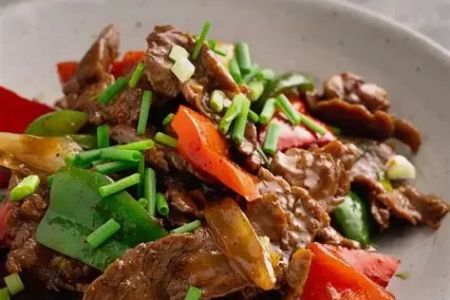- 1 - What Is Chinese Chili Oil and Why It Matters
- 2 - Sichuan Chili Oil and Its Spicy Charm
- 3 - Crispy Chili Oil and Modern Culinary Trends
- 4 - Aromatic Chili Oil with Herbs and Spices
- 5 - Homemade vs. Store-Bought Chili Oil
- 6 - Practical Uses in Everyday Cooking
- 7 - Cultural Stories and Popularity Worldwide
- 8 - Where to Find Authentic Chinese Chili Oil
1 - What Is Chinese Chili Oil and Why It Matters
When we talk about Chinese chili oil, we refer to more than just a condiment. It’s a versatile flavor enhancer that blends heat, aroma, and depth into countless dishes. For centuries, this red-hued oil has been part of Chinese dining culture, transforming plain noodles, dumplings, and stir-fried vegetables into flavorful delights. Understanding different types of chili oil is essential for anyone who wants to explore authentic Chinese cuisine.
2 - Sichuan Chili Oil and Its Spicy Charm
Sichuan chili oil is perhaps the most famous variety. Known for its bold flavor, it combines dried chili flakes with Sichuan peppercorns, which create a unique numbing and spicy sensation. A bowl of wontons in red oil is a classic example of how this chili oil elevates simple ingredients. In many households, it is prepared in small batches to preserve freshness and fragrance, making it a staple in everyday cooking.
3 - Crispy Chili Oil and Modern Culinary Trends
In recent years, crispy chili oil has gained global attention. Unlike traditional smooth chili oils, this version includes crunchy garlic, onion, and soybeans that create a satisfying texture. It became a viral sensation on social media when people discovered it could be added not only to noodles and dumplings but also to pizza, fried eggs, and even ice cream. This demonstrates how versatile chili oil can be, blending tradition with creativity.
4 - Aromatic Chili Oil with Herbs and Spices
Another variation is aromatic chili oil, often infused with star anise, cinnamon, or bay leaves. This type is milder in heat but rich in fragrance, making it perfect for braised dishes or soups. Families often prepare it during festivals, as its aroma fills the kitchen with warmth and comfort. Such chili oils show the diversity within Chinese culinary traditions, where each region adds its own twist to the recipe.
5 - Homemade vs. Store-Bought Chili Oil
One of the most common debates is whether homemade or store-bought chili oil is better. Homemade versions allow customization—some prefer extra garlic, others like more Sichuan peppercorns. Store-bought options, on the other hand, provide convenience and consistency. Well-known brands have become international favorites, proving that chili oil is no longer limited to Chinese households but embraced worldwide.
6 - Practical Uses in Everyday Cooking
Understanding different types of Chinese chili oil also means knowing how to use them effectively. A spoonful of Sichuan chili oil can bring life to a simple bowl of noodles. Crispy chili oil works wonders as a topping for rice bowls or grilled meats. Aromatic chili oil can be stirred into soups or hot pots for a subtle, layered flavor. Experimenting with these oils can completely transform your cooking at home.
7 - Cultural Stories and Popularity Worldwide
Chinese chili oil has also played a role in cultural stories. In some families, it is passed down as a secret recipe, cherished for generations. Online, people share viral recipes and personal stories about discovering chili oil for the first time. The fact that it has become popular in Western restaurants shows how food can transcend borders, bringing people closer to Chinese culture through taste.
8 - Where to Find Authentic Chinese Chili Oil
If you are inspired to try these different types of chili oil, visiting Chinese Food is highly recommended. You can find authentic chili oils that match traditional recipes and explore varieties that suit your cooking style. From Sichuan-style to crispy versions, the right chili oil can open up endless culinary possibilities in your kitchen.








